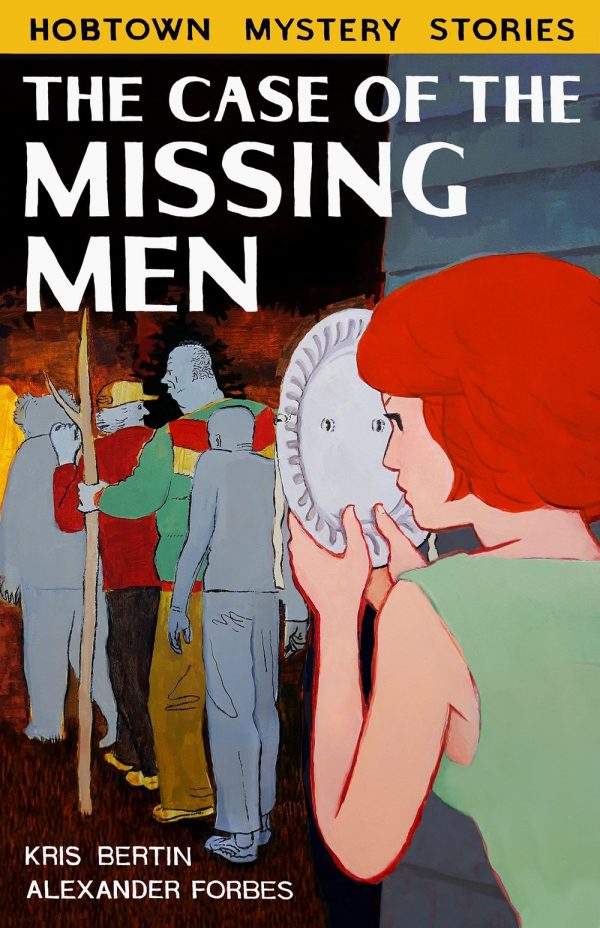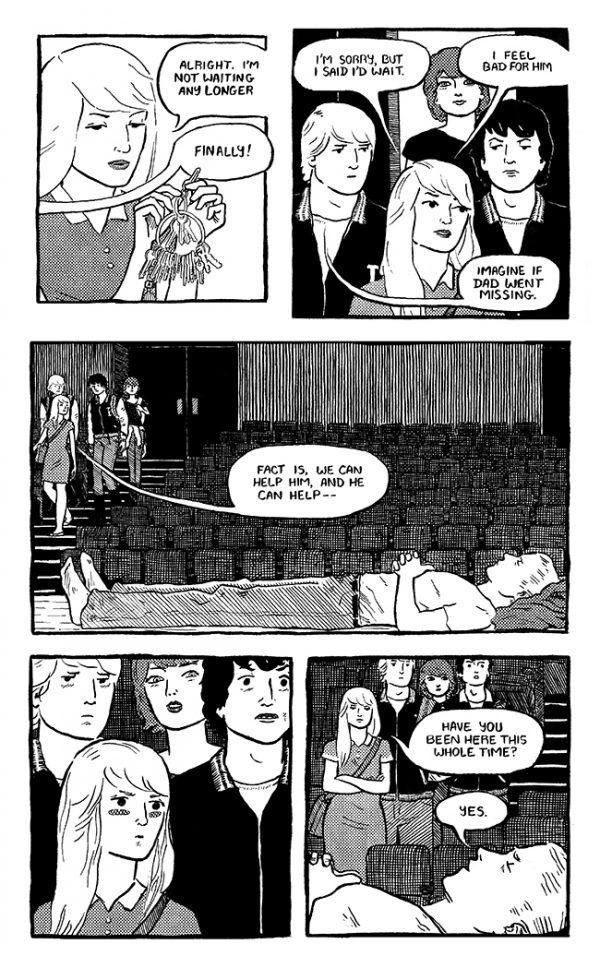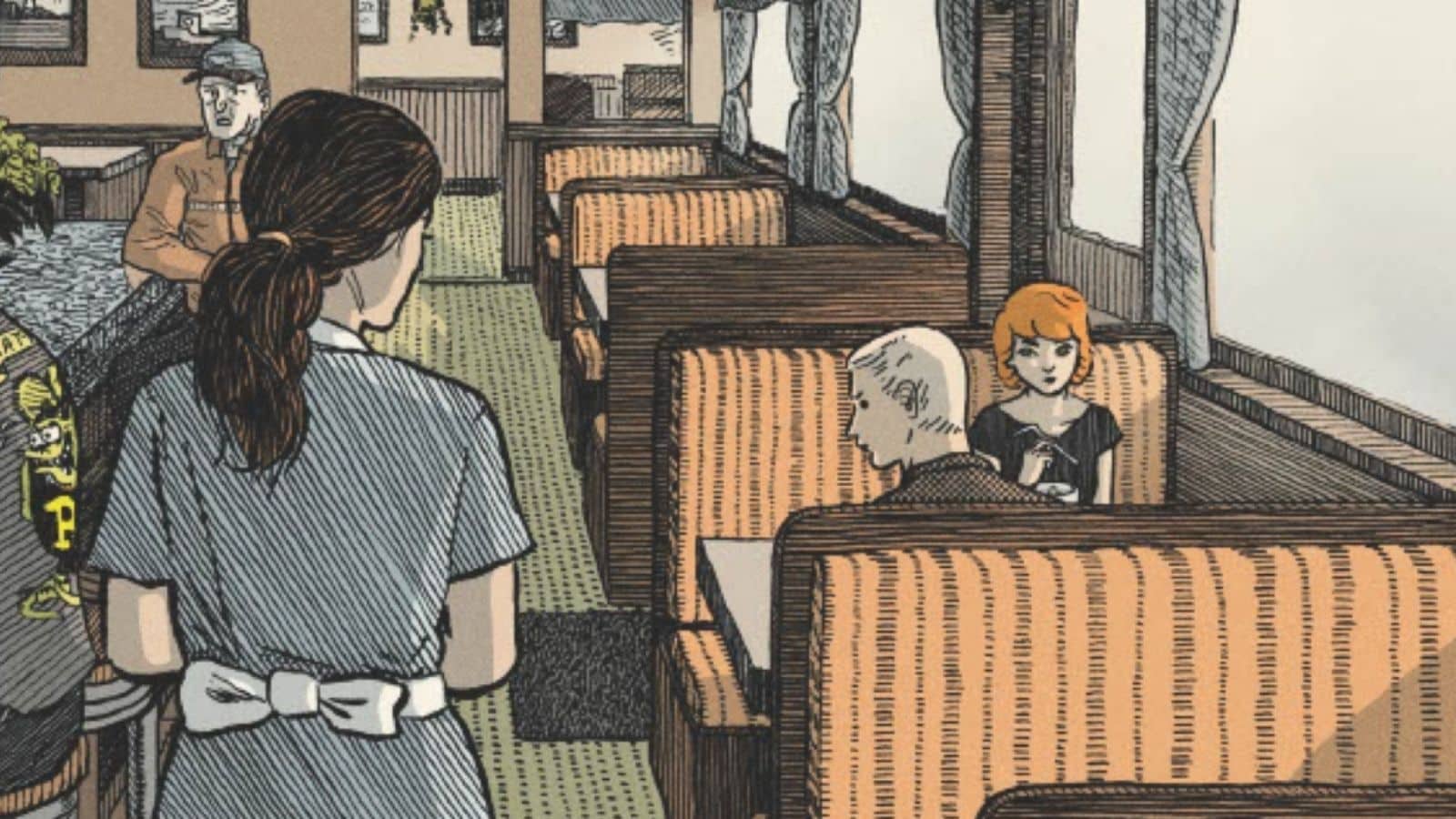From the Hardy Boys to Scooby Doo to Blue Velvet and onward the trope of teens attempting to solve mysteries is a well-worn one and not likely to go anywhere. There’s something about pesky kids and overactive imaginations that come together well in uncovering what lurks beneath reality as we perceive it. Perhaps it’s that they aren’t content to accept everything for what it is because age hasn’t beaten them into an acceptance that is really just a plea for consistency. When you become a grown-up, you just want things to go smoothly. Kids want adventure.
The Case of the Missing Men falls directly in that investigative teen genre, while also commenting on it from the outside.
Billed as the first of the Hobtown Mystery Stories, writer Kris Bertin and artist Alexander Forbes present a world that walks a line between two levels of surrealism. One is a world so innocent that it barely makes sense, its purity requiring leaps in logic and patience. That’s where the Teen Detective Club lives, an afterschool program that outsider student Sam Finch finds himself forced into after getting in some administrative trouble at the school.
Turns out Sam isn’t actually a student, he’s just forced to go through the motions of appearing to be a student because that’s where the police take him when he’s picked up for truancy. Sam is the gateway to the other level of surrealism, the adult one, and but he is only on the edge of it, trapped somewhere between boyhood and manhood as he attempts to make sense of both as anything other than opposing realities.
The Teen Detective Club has found a mystery it feels is worth investigating — they spotted some weird guy in the woods digging a hole — but it’s Sam’s presence that brings that isolated oddity into a wider investigation. Sam’s dad is missing and he has discovered that there are several other missing men in Hobtown. What is their connection?
You can think in terms of folk horror tales like The Wicker Man when trying to predict what the Teen Detective Club is going to uncover, overarching conspiracies that wrap in the wider history of the town along with the secret personal lives within local families. That’s part of the trope. Wide ranging secrets are as likely as pulling off the monster mask to discover the owner of the carnival is trying to scare people off its grounds. But that’s Scooby Doo and we’re living in the Lynchian future where the denouement is much more complicated and much less aboveboard. Answers always lead to more questions and questions inevitably have several different answers.
That’s the beauty of The Case of the Missing Men. As much as it takes its place in the teen investigative pantheon, it also understands its place within it. Teens search and search and seek change, but inevitably get swept up in the chaos that generations before them have tried to keep under control. Becoming an adult is the moment you take on that responsibility, when you work to keep all that came before waging the full scale destruction it always threatens to. Becoming an enlightened adult is that moment when you try to do it a little differently from those who came before you, maybe even understand its fury.








